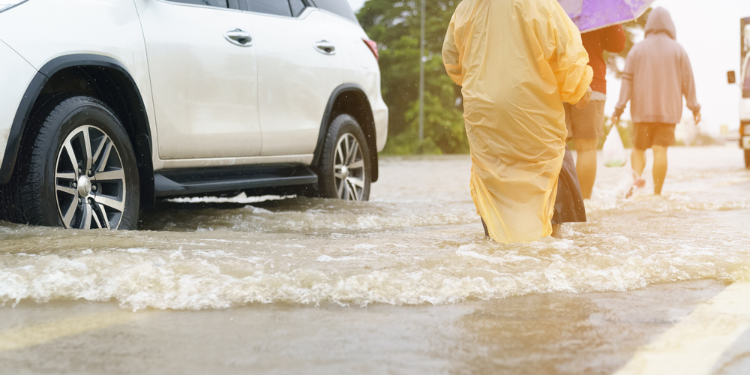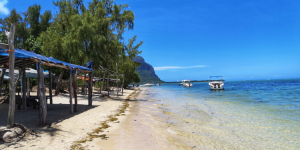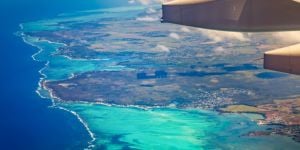
Although the weather is expected to improve by the weekend, Mauritius has experienced a nightmare in recent days. On Wednesday, several regions, mainly in the south, were underwater. But what led to such a dramatic situation?
The development of an anticyclone in the South of the Mascarene Islands led to bad weather conditions since the start of the week. On Tuesday, the Meteorological Station warned of heavy rain until Friday morning. A torrential rain warning was issued on Tuesday afternoon until Wednesday night.
From Tuesday night to Wednesday, active clouds associated with the anticyclone became more intense, causing moderate to heavy showers and thunderstorm in several regions, including Plaines Wilhems and the Northern of the island. Virtually no region was spared.
Land saturation caused flooding, mainly in the south and southeast of the island. Swollen rivers and watercourses flooded many houses and cultivations. According to the Meteorological station, there are stills risks of heavy rain on Thursday. The population is advised to avoid high-risk places such as rivers and flood-prone regions.
Motorists are warned of reduced visibility in several regions due to intermittent showers and pockets of fog. You are also advised to avoid venturing near beaches. The sea is rough beyond the reefs with 2.50m to 3m waves.
The anticyclone also caused temperatures to drop between 19 and 22 degrees Celsius on average in the high lands and between 24 and 26 degrees Celsius in coastal regions. Gusts of up to 60 km / h were recorded in several regions.
Safety first
Employees of the public sector, except those working in essential services, were entitled to a bank holiday on Wednesday. Business Mauritius, meanwhile, called on private companies to take necessary measures, especially those providing transport to their employees. Since the past few weeks, only Work Access Permit (WAP) holders were allowed to go to their place of work, so the rest of the private-sector employees were allowed to work from home. Banks and several other institutions, including courts, remained closed on Wednesday.
Public transport, including the Metro Express and the bus service, was not operational either. Firefighters had to intervene in areas where roads were obstructed, mainly in the south of the island. Chemin Grenier, which had been flooded last weekend, was not spared. From Tuesday to Wednesday, the Nouvelle France region was the most affected. On Wednesday morning, the inhabitants got on the streets Wednesday to evacuate the accumulated water from their yards. On Wednesday night, La Caverne, Vacoas, and nearby localities were also flooded.
The risk of infections is real
Following the heavy downpours, the risks of gastrointestinal infections are high. In a press release issued by the Ministry of Health on Wednesday, it is recommended that all the precautions be taken with regard to tap water. Make sure to boil it before drinking. Water accumulations can also encourage the proliferation of mosquitoes that are vectors of diseases like malaria and chikungunya. So make sure to wear clothes that cover most of your body and use mosquito repellents.
A blessing for reservoirs
Amid the chaos, there's still some good news. Five of the seven reservoirs across the island, namely Mare aux Vacoas, Midlands, Piton du Milieu, Mare Longue and Mare Longue are 100% full.




















Comments